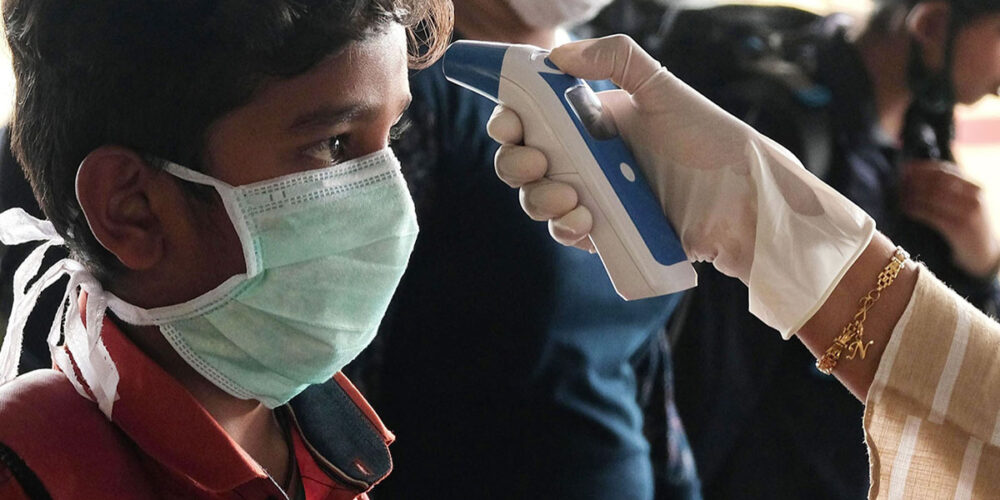There is a saying, “Life is an education of a different kind, where exams come before the lessons.”
The nineteenth-century cholera outbreak taught England the importance of underground drainage systems. Covid-19 has taught us many lessons; one among them is that there are some sectors that have to be the responsibility of the state, such as health services, which should not be privatised. The other lesson is that the virus can affect anyone, without class bias; but the effect is not the same on all classes: as usual in any crisis, the working class is the worst affected
India is the latest epicentre of covid-19 and is drowning under the second wave of the pandemic. While the prime minister is busy with campaign speeches, the people of India are running from pillar to post for oxygen. Mass cremations are conducted because of the piling up of dead bodies. Every day more than 200,000 people become infected.
The lockdown during the first wave was a disaster. People were informed a mere four hours beforehand. Immigrants in their thousands who depend on day-to-day wages walked hundreds of miles to go back home; many did not complete the journey but died at the roadside.
All this happened in the largest democracy, where the government is supposed to be accountable.
Why is an elected government so callous? Is it a phenomenon seen only in India? Earlier, during the welfare-state period, the political sphere controlled the economic sphere; but in the neoliberal era capital accumulation in the hands of monopolies became so huge that it led to the accumulation of political power, with the policies of governments dictated by the monopolies.
This transfer of political power forced governments to draft laws that further exacerbate the accumulation of wealth in the hands of the few. During covid-19, when India’s GDP shrank by 7 per cent, the number of dollar billionaires increased from 102 to 140.
At a time when the vaccinations were to be given free by stepping up production, using public-sector institutions, the vaccines were priced at different rates for central and state governments, to facilitate the maximising of profit by private companies. The day when the government announced its vaccine policy, in favour of monopolies, the shares of four pharma companies went up by 30 per cent.
Until the middle of April only 8 per cent of the population had been given a single dose of vaccination and only 1 per cent given both doses. In a country of 1.4 billion people there is a large market that can be exploited for profit.
The World Trade Organization’s intellectual property rights agreement in the field of life-saving medicines is another war waged against people, especially during critical times such as the present one.
At the end of chapter 31 of Capital, Marx quotes the English trade unionist and Chartist T. J. Dunning, who wrote:
<extract>“With adequate profit, capital is very bold. A certain 10 per cent. will ensure its employment anywhere; 20 per cent. certain will produce eagerness; 50 per cent., positive audacity; 100 per cent. will make it ready to trample on all human laws; 300 per cent., and there is not a crime at which it will scruple, nor a risk it will not run, even to the chance of its owner being hanged.”
When people are dying in the streets, the corporates are fighting for profits on the corpses of the deceased.
The situation may be better in Ireland when compared with India, but the neoliberal policies that bind the governments are the same in the two countries. These policies reduce elected governments to agents of finance capital. The austerity measures are implemented without concern for people, according to the directions given by the EU (in the case of Ireland). Austerity measures reduce government expenditure for people’s welfare, such as health and education.
Austerity is a euphemism for class war, declared by the ruling classes on the working class.
It is false to say that the pandemic is the cause of all the damage: in fact the pandemic exposed the flaw that exists in the capitalist system, which is based on profits.
Noam Chomsky explains how the public accepts privatisation. “The standard technique of privatization: defund, make sure things don’t work, people get angry, you hand it over to private capital.” The privatisation of health services to facilitate the maximising of profit, thereby relieving governments of the responsibility, led to the catastrophe that humanity faces today.
There are two ways ahead for us: we can sweep everything under the carpet and go on doing our business as usual, or we can question the logic of privatising essential needs, such as health, education, and housing, and oppose the austerity measures and the burden of debt on the Irish people. But the wounds caused by the pandemic are so deep that the former is no option.






